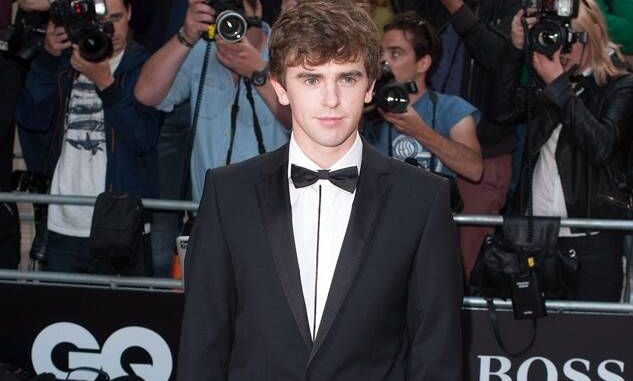
The Good Doctor has stood out for its emotional intelligence, compelling storytelling, and powerful performances—especially from Freddie Highmore, who plays Dr. Shaun Murphy, a young surgeon with autism and savant syndrome. Since its debut in 2017, the series has drawn in millions of viewers worldwide, sparked meaningful conversations around neurodiversity, and earned a loyal fanbase.
From the very first episode, Highmore delivered a portrayal that was both emotionally nuanced and intellectually challenging. Playing a character on the autism spectrum requires incredible sensitivity and research, and Highmore brought that and more—layering Shaun Murphy with vulnerability, courage, blunt honesty, and growth across every season.
In 2018, Highmore received a well-deserved Golden Globe nomination for Best Actor in a Television Drama. That nod, however, was followed by silence in subsequent years. Even as the show evolved and Shaun’s journey deepened—falling in love, losing friends, navigating grief—awards bodies looked elsewhere.
Some critics speculate that the subtlety of Highmore’s performance may have worked against him. In a landscape where over-the-top monologues and tearful breakdowns often draw attention, Highmore’s quiet brilliance was easy to overlook—especially by voting groups that often favor prestige dramas with higher budgets or edgier subject matter. The Good Doctor placed a neurodivergent character at the center of a network TV show—something rarely, if ever, done with such care and visibility. The series didn’t rely on stereotypes or “inspiration porn.” Instead, it gave audiences a layered, authentic look at how someone with autism might navigate the complexities of both medicine and human connection.
The impact was immediate and far-reaching. Autism advocacy organizations praised the show. Fans shared stories about how Shaun’s character helped them better understand family members or even themselves. It started conversations in classrooms, hospitals, and living rooms. It mattered—and it still does. Yet, major awards ceremonies rarely honor impact over innovation. Shows that challenge the statuetworks like HBO, FX, or Apple TV+. And The Good Doctor, airing on ABC, found itself in the unenviable category of being “popular but not prestige.”

Richard Schiff as Dr. Aaron Glassman brought gravitas, heartache, and mentorship to the series, especially in the early seasons. Antonia Thomas as Dr. Claire Browne created one of the most empathetic and grounded characters on the show. Hill Harper, Will Yun Lee, Fiona Gubelmann, and Paige Spara all contributed to a rich and complex ensemble. Yet, none of them received any serious awards attention during the show’s run. This is where The Good Doctor suffered from something many mainstream shows do: being too consistent. Without scandalous headlines, shock-value plots, or celebrity stunt casting, the show didn’t generate the kind of buzz that tends to attract award voters looking for a “moment.”
Medical schools have used The Good Doctor to discuss ethical dilemmas and empathy in patient care. Families with autistic children have written letters expressing their gratitude for the show’s visibility. In countries around the world, from Brazil to Japan, the series has sparked local adaptations and grown massive followings. In 2020, The Good Doctor was one of the most-watched television dramas globally. In streaming metrics, it consistently held its ground against flashier Netflix originals and high-budget prestige content.
The Good Doctor succeeded because it told honest stories. It respected its audience. It put underrepresented voices front and center without tokenism. It thrived in the quiet spaces between dramatic beats, where real connection lives. But awards do matter. They validate the hard work of actors, writers, directors, and crew members who pour themselves into every scene. They help shows stay on the air, attract new talent, and reach new viewers. And they send a message about what the industry values. By continually ignoring The Good Doctor, awards shows send a dangerous message: that subtlety, compassion, and steady impact matter less than shock, spectacle, or snob appeal.
